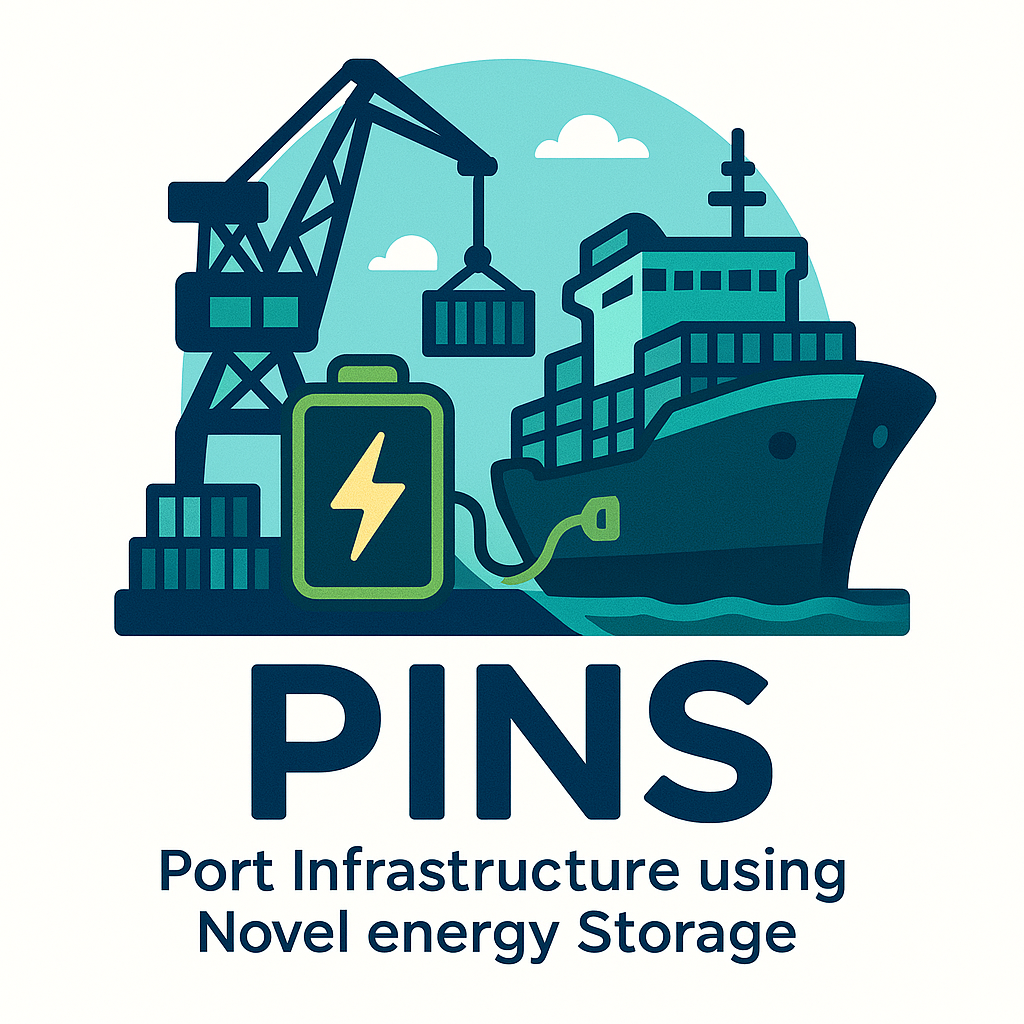New PINS project, lead by MSE International, kicks off looking at Port Infrastructure using Novel Energy Storage

Funded by UK Government through the UK Shipping Office for Reducing Emissions (UK SHORE) programme in the Department for Transport, the PINS project will validate the feasibility of a novel shore power and recharging infrastructure that avoids barriers encountered in previous shore power projects.
A central feature of the PINS solution is the use of energy storage in the port or harbour operating under a multi-vector energy management system. Battery energy storage systems (BESS) are available at less than £100k/MWh following scale-up for the PV soar market. These integrated BESS units are commercially attractive for meeting high, intermittent loads such as in ports. The PINS project will perform front end engineering design (FEED) studies to show how these infrastructure solutions could be deployed and operated on a commercial basis, without subsidy.
Three port/harbour locations will be studied as pilot sites:
1. Cowes, where new recharging infrastructure is needed to serve vessels on two Green Corridors (along the Medina river and across the Solent):
2. Portsmouth, where the value-add of battery storage can be analysed in new shore-power facilities for cross-channel ferries;
3. Falmouth, where recharging of future small electric passenger ferries is needed in locations served by only a standard 415VAC 3-phase connection.
For each pilot site and duty-cycle scenario, four battery types will be evaluated to assess attractiveness. Feasibility today will be assessed using two scaled battery types (LFP and re-used Li-ion) while future feasibility (in 2030) will be assessed using two pre-scale battery types (NIB and SLFB) which offer significant UK supply chain potential.
PINS will also explore solutions for transferring power from shore to vessel.Outline designs of automated wireless inductive connectors will be developed and their future role in port infrastructure assessed under various use-cases.
To be kept up to date with activities and results from this project please subscribe to the MSE International Decarbonisation Interest Group here.


